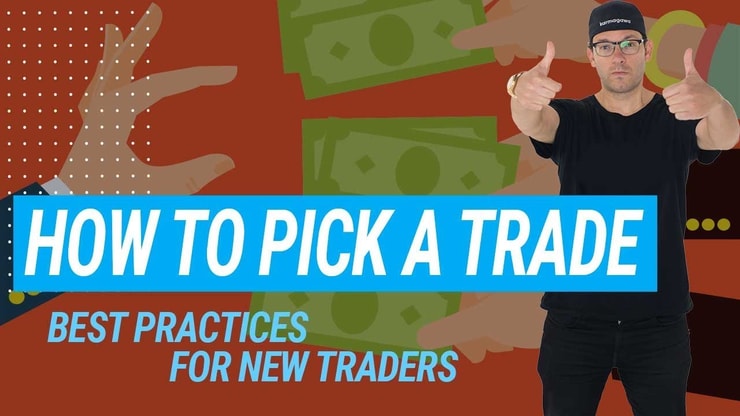Corporate Universe, Inc. (OTC Pink: COUV) has been soaring to new highs lately. It’s part of a larger trend where dozens of stocks, in the typically illiquid OTC markets, have come to life in recent months.
At the beginning of December 2020, COUV was trading near $0.02 per share. Yesterday it closed at $0.84, an increase of 4,200%.
The dollar volume for yesterday’s trading session exceeded $15 million as amateur traders have been drawn to these high-risk/high-reward stocks.
There have been plenty of stocks in the OTC with oversized gains the past few months. But there’s a hidden danger that the promoters of these stocks often fail to disclose.
Some companies that trade on the OTC markets have been known to make misleading statements.
Penny stock trader and teacher Timothy Sykes warns his followers on Twitter that OTC stocks can be extremely dangerous to trade. He encouraged his followers to “stay safe” and be “cynical.”
The $COUV halt should help you see how dangerous these OTCs are, no matter what promoters say about $TSNP $ALPP $OZSC $ENZC $ASTI $OPTI $CELZ $GAXY $CLWD $SNPW $VDRM comparing them to blue chips like $PYPL $AMZN $AAPL is laughable, stay safe/cynical, watch https://t.co/KhqHFIe64c
— Timothy Sykes (@timothysykes) February 10, 2021
After the markets closed yesterday, the U.S. Securities and Exchange Commission announced it has ordered a 14-day halt of trading in COUV stock, “because of questions regarding the accuracy and adequacy of information.”
In the release, the SEC reports it’s investigating two claims Corporate Universe, Inc. made in two separate December press releases, citing:
- “A statement made by COUV on December 1, 2020 that it is currently selling a mask proven to filter 98% of COVID-19 particles and is scientifically proven to kill COVID-19 particles.” (See the COUV release here.)
- “A statement made by COUV on December 16, 2020 that it has entered into a definitive letter of intent to acquire a company that holds 30 patents related to carbon ion battery technology.” (See the COUV release here.)
The SEC also appeared to echo Sykes’ warning, saying that market participants “should carefully consider the foregoing information along with all other currently available information and any information subsequently issued by the company.”
Trust No One
It doesn’t matter who’s telling you a stock is great — you should never believe them.
Reddit doesn’t know. Your plumber doesn’t know. Not even the talking heads on TV can tell you what’s going to happen next in the market.
The reality is…
It’s the CEO’s job to be a cheerleader for a company. Promoters only make money if they get investors to buy, so they’re willing to say anything and everything to convince people they know what’s going to happen next.
To veteran traders like Sykes, the trading halt on COUV and the ensuing investigation is no surprise. He’s always warning his followers not to get caught up in the hype surrounding penny stocks.
EXPECT THE WORST OUT OF EVERY PENNY STOCK, EVERY PENNY STOCK TRADER, EVERY COMPANY, EVERY ANALYST, IT'S ALL BULLSHIT! THE ONLY THING THAT SPIKES PENNY STOCKS ARE NEWBIES CHASING, PROMOTERS PUMPING & SHORT SELLERS GETTING SQUEEZED…once you realize that you can trade much better!
— Timothy Sykes (@timothysykes) June 28, 2020
The truth is no one knows what’s going to happen next. No one can see the future.
In order for traders to stand a chance in the markets, they must see through the lies and be cynical about everything and everyone in the stock market.
What’s happening today is no different than what’s happened in the past. Sykes gave a speech in Canada in early 2019. The messages are as true today as the day he gave the speech.
If you learn one thing from the COUV trading halt, learn this: If you expect the worst, you’ll never be disappointed.
Never forget 90%+ of traders lose & 99.9% of penny stock companies will fail, but if you study hard, expect the worst out of everyone/every stock & find what patterns/setups work best for you, it's possible to find your groove & succeed over time, especially in this CRAZY market!
— Timothy Sykes (@timothysykes) January 26, 2021
It’s been widely reported that over 90% of traders fail to make money in the long run. And most penny stock companies eventually go bankrupt.
The SEC and Sykes agree: When it comes to the markets, trust no one.
Posts contain affiliate links. Timothysykes.com may get compensated for affiliate posts and purchases through links.
Image: kkssr/Shutterstock.com




Leave a reply